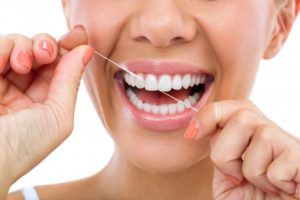 According to your dentist in Fort Worth, all patients are told the importance of brushing and flossing after having a meal. Flossing in particular works to remove food from the hard-to-reach areas of your teeth but did you know that it also protects you from tooth decay and gum disease? Without flossing, you aren’t going to be as thorough as you should be when it comes to maintaining oral health.
According to your dentist in Fort Worth, all patients are told the importance of brushing and flossing after having a meal. Flossing in particular works to remove food from the hard-to-reach areas of your teeth but did you know that it also protects you from tooth decay and gum disease? Without flossing, you aren’t going to be as thorough as you should be when it comes to maintaining oral health.
Today we’ll be going over the benefits of flossing, besides getting that lingering piece of food out of your teeth.
Why Do People Not Floss Daily?
Most people have the pre-conceived notion that flossing is only intended to remove food particles stuck in between teeth. While it’s true that flossing accomplishes this, it’s not its only purpose. When people assume that flossing is only for removing food caught in teeth, they also assume that it’s the only time they need to floss throughout their day.
It’s a good practice to floss after meals to prevent bacteria from latching onto residual food debris but it shouldn’t be the main reason to do it. According to the American Dental Association, patients should be flossing at least once per day. This is because flossing doesn’t only remove food debris.
What Else Does Floss Remove?
Keep in mind that brushing alone won’t help you reach the tighter spots in your mouth. On average, brushing only cleans about 65 percent of the mouth, with floss picking up for the rest. While plaque is generally easy to remove from the visible and chewing surfaces of teeth, your toothbrush won’t catch the sides of your teeth. Without regular flossing, you’ll miss large amounts of plaque that can accumulate throughout your day.
After enough time, these spots will collect more and more plaque, eventually turning into tartar, also known as calculus. This hardened form of plaque is only removable by a professional dentist. Without removal, you’ll be at a much higher risk of developing gum disease. You’ll also be giving bacteria an opportunity to break down your teeth.
Flossing and Gum Disease
Unremoved plaque and tartar will start irritating the gums, causing them to become red and inflamed. This can lead to bleeding either during or after brushing. In more developed cases, it can even cause bleeding to occur from simply eating. This early stage of gum disease is known as gingivitis. Luckily, this early stage is reversible after improving your oral care routine.
The best time to floss is right before bed, since that is the time you’re most likely to experience dry mouth. When the mouth is dry, bacteria can grow and move around more easily. By flossing right before going to bed, you’re reducing oral bacteria’s ability to break down your tooth enamel and irritate your gums throughout the night.
To protect your tooth enamel and prevent gum disease, start flossing daily! To see if your regimen is up to par, schedule an appointment with your family dentist in Fort Worth today!
About the Author
Dr. Jasmine Coleman King earned her Doctor of Dental Surgery degree from the University of Tennessee College of Dentistry. She takes many hours of continuing education to stay current on the best techniques and latest advancements in dentistry. To learn more about the practice, contact your dentist in Fort Worth at (817) 292-7488 or visit her website.
